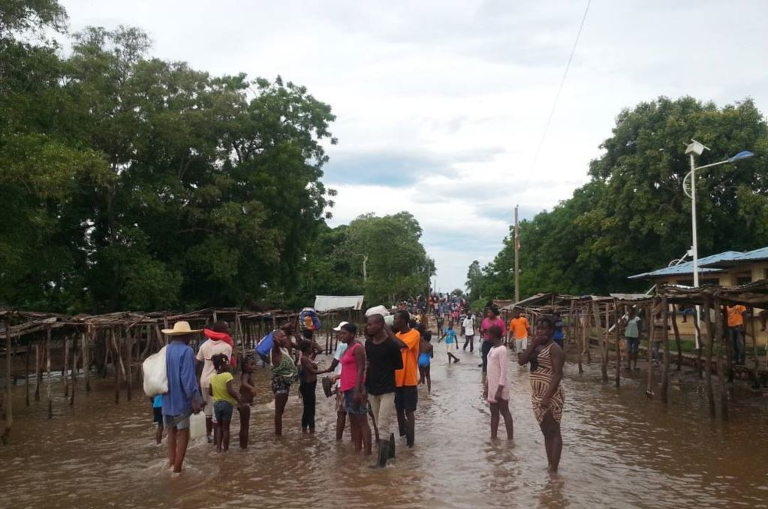Wealth inequality dramatically increases between white communities and communities of color in the U.S. following a natural disaster, a new study found.
According to the study by Rice University and the University of Pittsburgh, in counties badly hit by natural disasters — areas with at least $10 billion in damages — white communities gained an average $126,000 in wealth following the damage and recovery efforts.
Yet, for Blacks, Latinx, and Asians living in counties hit hard by natural disasters, these communities saw their wealth decrease by an amount between $10,000 and $29,000.
With climate change, natural disasters such as hurricanes and wildfires are becoming more severe. As the study shows, wealth inequality is intricately connected to these disasters, and will likely become worse as storms become more destructive.
“Put another way, whites accumulate more wealth after natural disasters while residents of color accumulate less,” said one of the study’s authors, Jim Elliott, a professor of sociology at Rice and fellow at Rice’s Kinder Institute. “What this means is wealth inequality is increasing in counties that are hit by more disasters.”
Part of the reason for this disparity is because white people were living in areas that saw higher levels of reinvestment post-natural disaster. More money comes into these areas, for instance, through infrastructure projects.
The study looked at data from roughly 3,500 families across the United States between 1999 and 2013. It looked at how the families’ personal wealth was impacted by natural disasters and recovery efforts, taking into account factors such as age, education, home ownership, and county population.
“Last year the United States suffered more than $260 billion in direct damages from natural disasters — mainly from hurricanes Harvey, Irma and Maria,” said the study’s lead author, Junia Howell, a scholar at Rice’s Kinder Institute for Urban Research and an assistant professor of sociology at the University of Pittsburgh. “And there were also numerous wildfires, floods, and tornadoes.”
“Data show that since 2000, approximately 99 percent of counties in the U.S. have experienced significant damage from some type of natural disaster, with costs expected to increase significantly over coming years,” Howell explained in a statement. “We wanted to investigate how these damages impact wealth inequality and accumulation.”
Another element that drives wealth inequality, according to the study, is post-disaster assistance delivered by the Federal Emergency Management Agency (FEMA). As the researchers found, counties that received more FEMA money saw greater increase in wealth inequality beyond that tied specifically to the natural disasters.
For instance, white communities in counties that received $900 million in aid between 1999 and 2013 saw their wealth increase by an average $55,000. This is compared to counties that only received $1,000 in aid during that time.
For minority communities in counties that received higher FEMA aid, Blacks accumulated an average of $82,000 less in wealth and Latinx communities saw $64,000 less in wealth accumulation compared to their counterparts in areas that received little FEMA assistance.
The researchers, however, aren’t sure why FEMA aid is further exacerbating inequality and say more work is needed to understand the connection. But, as Howell noted, “based on previous work on disasters such as hurricanes Katrina and Harvey, we know FEMA aid is not equitably distributed across communities.”
“This is particularly true when it comes to infrastructural redevelopment,” Howell said, “which often has profound effects on residents’ property appreciation and business vitality. When certain areas receive more redevelopment aid and those neighborhoods also are primarily white, racial inequality is going to be amplified.”





